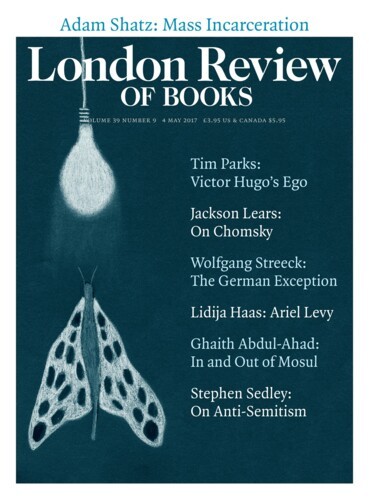My sleep is broken by a terrifying thud. I leap out of bed to the sound of another one. The sirens wail. I fling open the door to my room and bolt out, calling for my father. He is hurrying from his study to the shelter. I yank open the door and we scramble inside. We strain to listen. A third rocket hits. It’s a sickening sound, difficult to describe. The sound of impact between a rocket and the earth. A boom that sometimes feels like it’s down the road. The people in Gaza, I think, have no warning and nowhere to hide.
Fida Jiryis
Fida Jiryis is the author of Stranger in My Own Land, out now in paperback.
Diary: Arabs of Inside
Fida Jiryis, 4 May 2017
After the wiping out of Palestine in 1948, about 15 per cent of the Palestinian population remained in the new state of Israel. On the surface, we are far more privileged than our brethren in the West Bank and Gaza; having Israeli citizenship and a passport means that we can vote, we have access to good education, public healthcare and social benefits, and we can travel easily, although we can’t visit some Arab countries. We don’t live in an occupied zone surrounded by checkpoints, with the constant threat of clashes, Israeli army incursions and settler violence. We are free to study almost anything we choose, in a country with a large job market. But this is a façade behind which is a system of rampant structural and institutional discrimination. As Palestinians, we spend every minute of our lives paying for the fact that we are not Jewish.
Read anywhere with the London Review of Books app, available now from the App Store for Apple devices, Google Play for Android devices and Amazon for your Kindle Fire.
Sign up to our newsletter
For highlights from the latest issue, our archive and the blog, as well as news, events and exclusive promotions.


